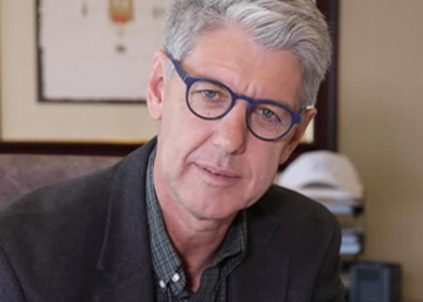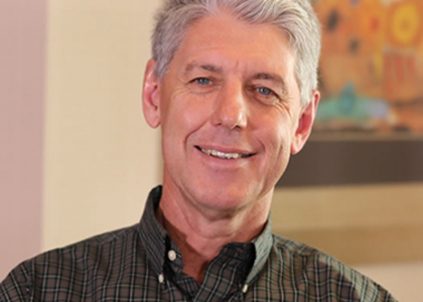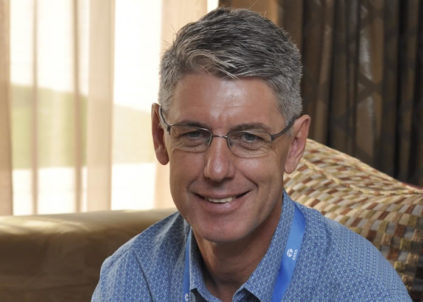How Investing in Small Business Entrepreneurship can Benefit Big Business
Published: 19th September, 2019

By Len Brand, CEO, Tata International Africa.
Businesses are dependent on the social, environmental, and economic sustainability of the communities in which they operate. Investing in initiatives which empower more people to become self-sufficient can have far-reaching benefits. The proverb ‘give a man a fish, and you feed him for a day; teach a man to fish, and you feed him for a lifetime’ is still one of the most powerful ways businesses can pay it forward.
Before I came on board in August 2016, the Tata Africa business was not in good shape. But execution of strategic initiatives which involve leading major organisational and cultural change to propel and sustain revenue growth is what I live for. It was a challenge that I relished.
Fast-forward two-and-a-half years and I’m pleased to say that, through a clearly defined ‘uptime’ turnaround strategy, we managed to achieve a 20% jump in turnover, and the business was returned to solvency.
It’s all about uptime
In essence, uptime is the opposite of downtime. For commercial vehicles like trucks and buses, uptime is the period when that vehicle is up and running, and downtime is when it’s off the road for maintenance or repairs. Obviously when human capital or other assets go down, the business suffers financially. So, the quicker we can get that vehicle back on the road, helping its driver or owner to earn an income, the better.
Access to parts and service
Before the implementation of our uptime strategy, Tata International Africa’s network consisted of independent 3S and 2S dealers in South Africa and Kenya, with Tata acting as importer and dealer elsewhere on the continent. All these facilities were in the main cities of each country.
A 3S facility is a dealership which offers sales, service, and spare parts. A 2S facility, usually owned by a private individual, offers only services and spare parts. Up till that stage, a 1S facility was just a guy selling grey import spare parts out of a container.
In order to truly grow our footprint, to create the economies of scale we needed across the continent, we had to transform Tata’s network in Africa through an innovative development programme.
So, in line with the ethos of the Tata family conglomerate and their unwavering commitment to job creation, education, and skills development, especially in the areas of youth employment, and community and social upliftment, we set out to empower existing small business owners to become entrepreneurs.
Empowering entrepreneurs
It’s important to understand that not all small business owners are entrepreneurs. While they are both self-employed, there are some distinct differences.
Small business owners are often sentimental, seeing their business as part of the community and part of the family. They are generally happy with the way things are, and content to simply carry on making a living, with limited growth and profitability.
Entrepreneurs, on the other hand, are not in business to simply achieve a level of income to support their current lifestyle. They are driven by passion or opportunity, and focus on innovative offerings, targeting rapid growth and high returns.
Our development programme was focussed on identifying those small business owners with entrepreneurial flair, and equipping them with the skills they needed to implement business processes and operating efficiencies to take their businesses to the next level.
We chose existing 1S facilities, strategically picking the ones already operating in prime locations, and offered to sell them genuine spare parts at a discounted rate, with a one-year buy-back guarantee.
We also offered free training for roadside mechanics, bringing them into one of our 3S or 2S facilities for three or four days, and training them on how to fix our vehicles.
Investment bears fruit
Our 1S pilot in Tanzania was a huge success. We’ve already seen the entrepreneurial results of the time and money we’ve invested in this programme.
When one of our customers’ trucks or buses break down, these Tata-trained roadside mechanics now go to their nearest 1S facility, buy the genuine parts, and fix the vehicle as quickly as possible.
There has also been a shift in our buying behaviour, as they have started buying spare parts from 1S facilities closest to them. Not only are they supporting small businesses in their communities, but in doing so, they are also able to get their customers’ trucks and buses up and running as quickly as possible.
All of this supports and bolsters our uptime strategy – positioning ourselves as the brand of choice in Africa for vehicles with the least amount of downtime. It’s a virtuous cycle.
The whole is greater than the sum of its parts
In South Africa, we still have more than 30 3S dealers, and have increased our 2S touchpoints to 91. We can reach a broken truck or bus in less than two hours. We are doing the same across the rest of the continent, where we have expanded our own 3S facilities beyond just the main cities, and added numerous independent 2S and 1S touchpoints. As you travel through Africa, you know there will be a Tata touchpoint somewhere along the way.
Our aim is to continue growing our brand awareness, to be top of mind for commercial vehicles on the continent, and ultimately for the Tata brand to be as big and respected in Africa as it is in India.
###
Note: Prior to his current position as CEO at Tata International Africa, Len Brand spent 22 years focussed on agricultural mechanisation equipment, and golf and turf equipment, in sub-Saharan Africa, Germany, and the United States, six of which were spent in the role of MD at John Deere Sub-Saharan Africa. He is a University of Pretoria alumni, with a BSc in Industrial Engineering, and also sits on the BRICS Institute’s Advisory Board.
Related posts

In April 2020 the Covid-19 pandemic brought Tata International Africa to a standstill,...

Len Brand, Chief Executive Officer at Tata International Africa Distribution Vertical, has travelled...

By Len Brand, CEO, Tata International Africa. One of the achievements I am...
